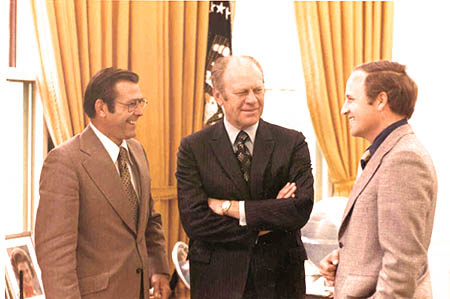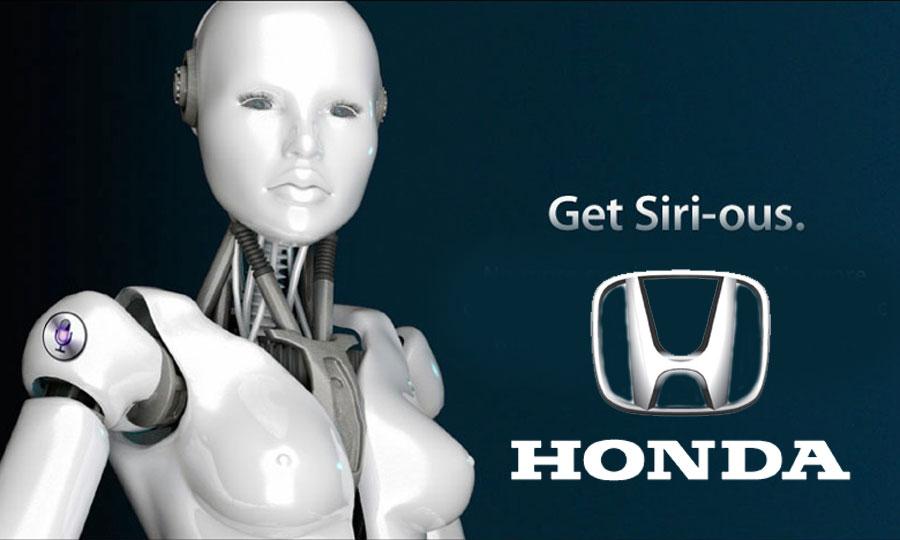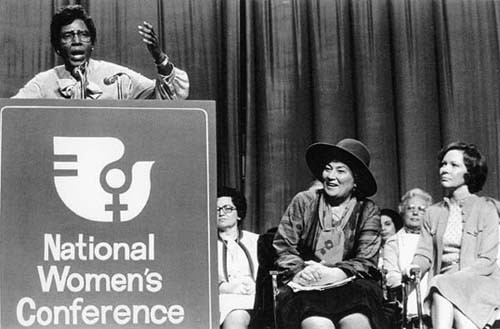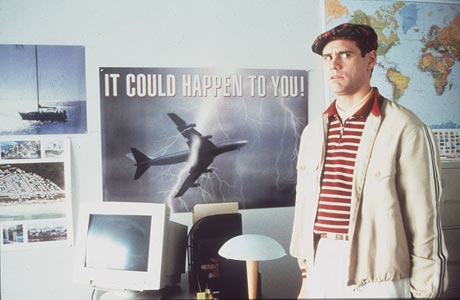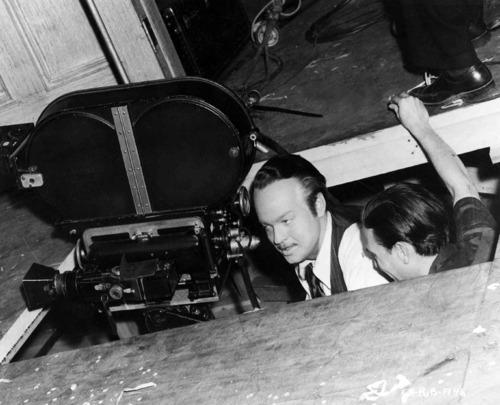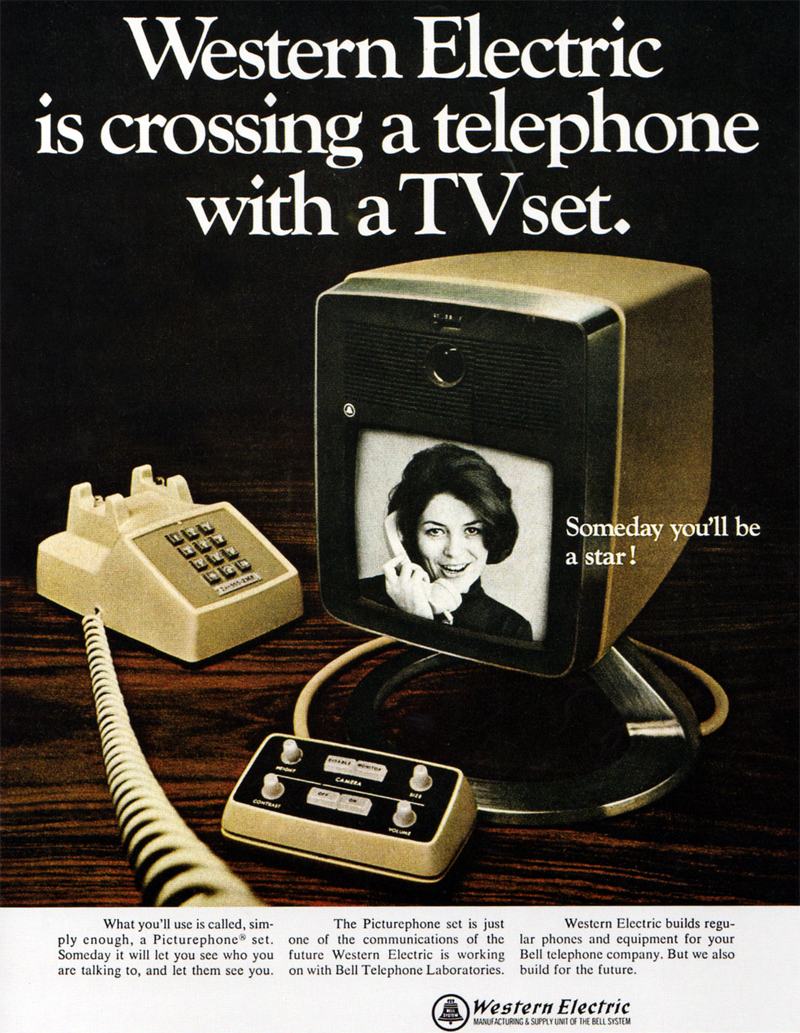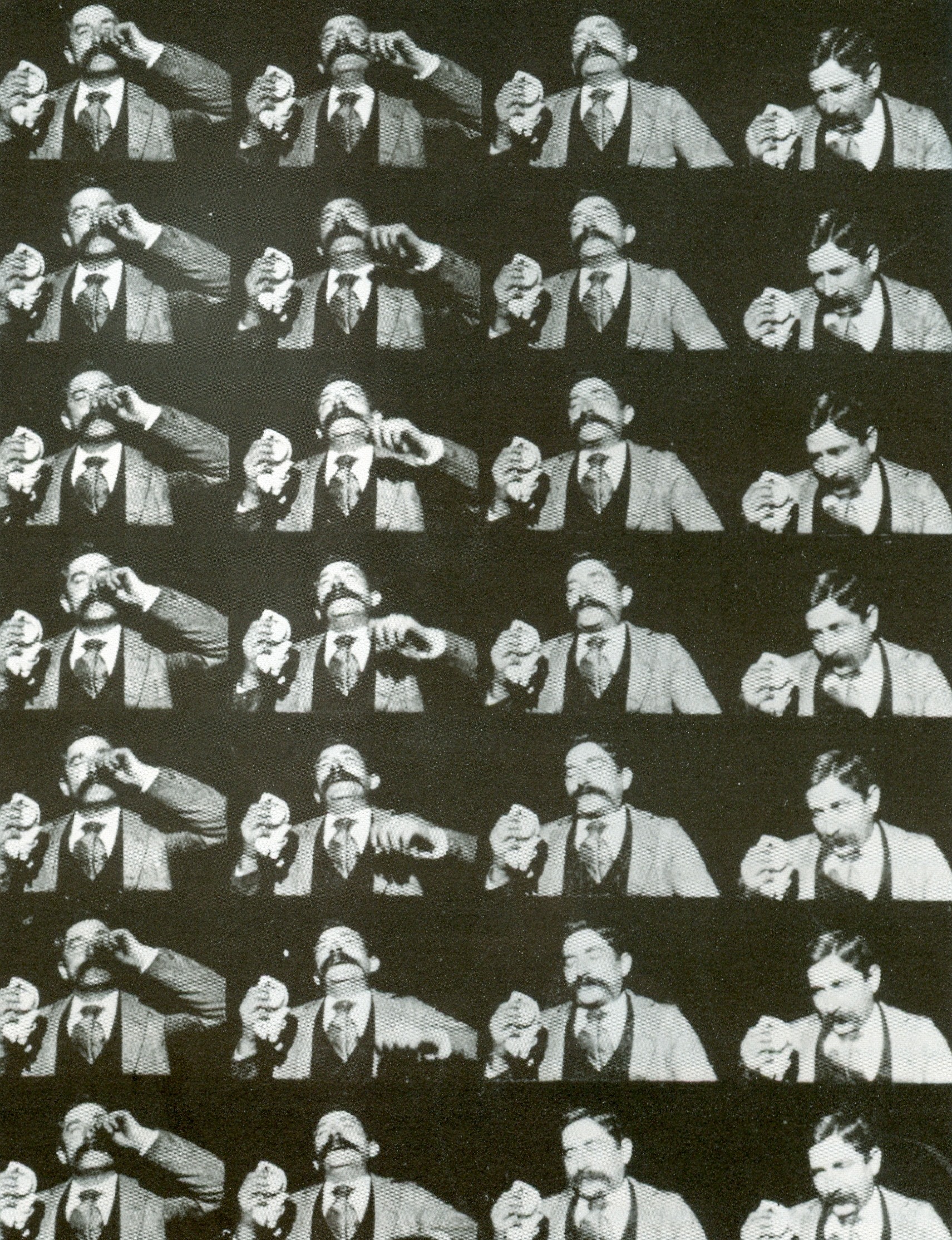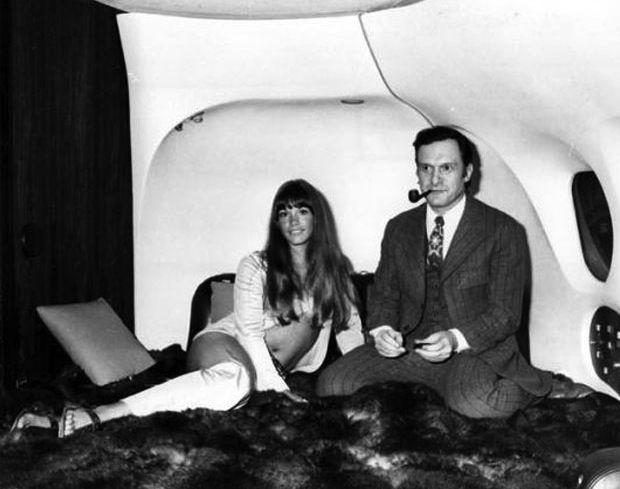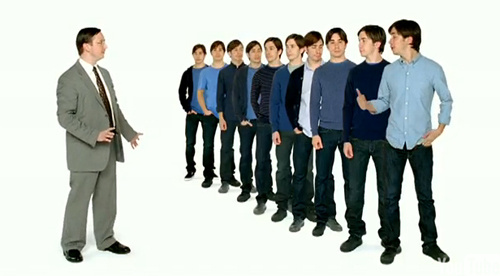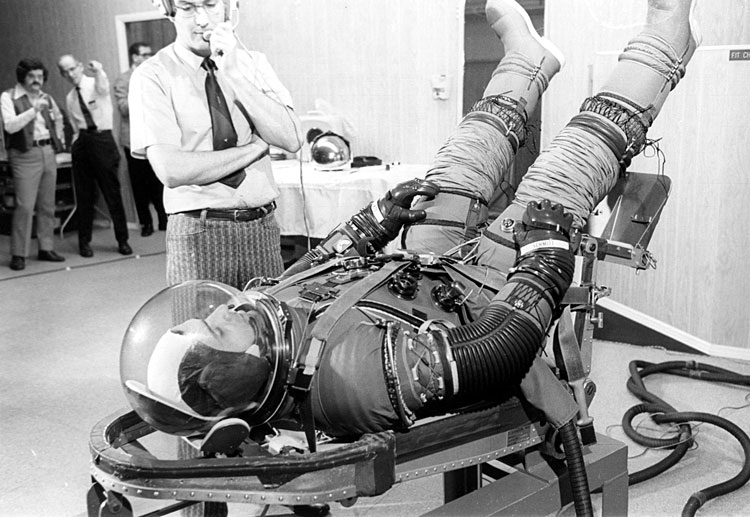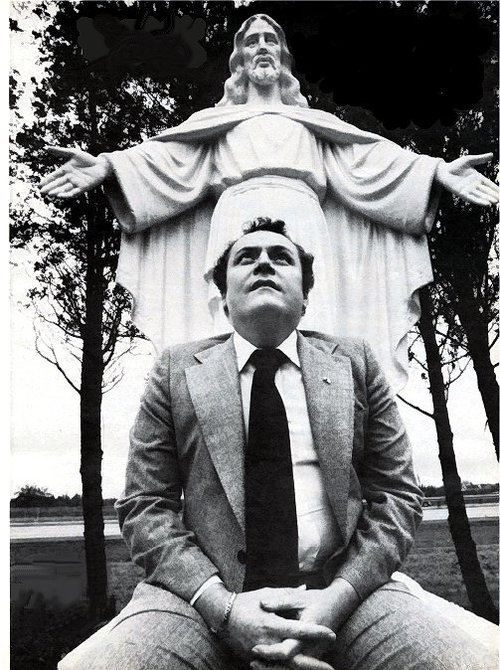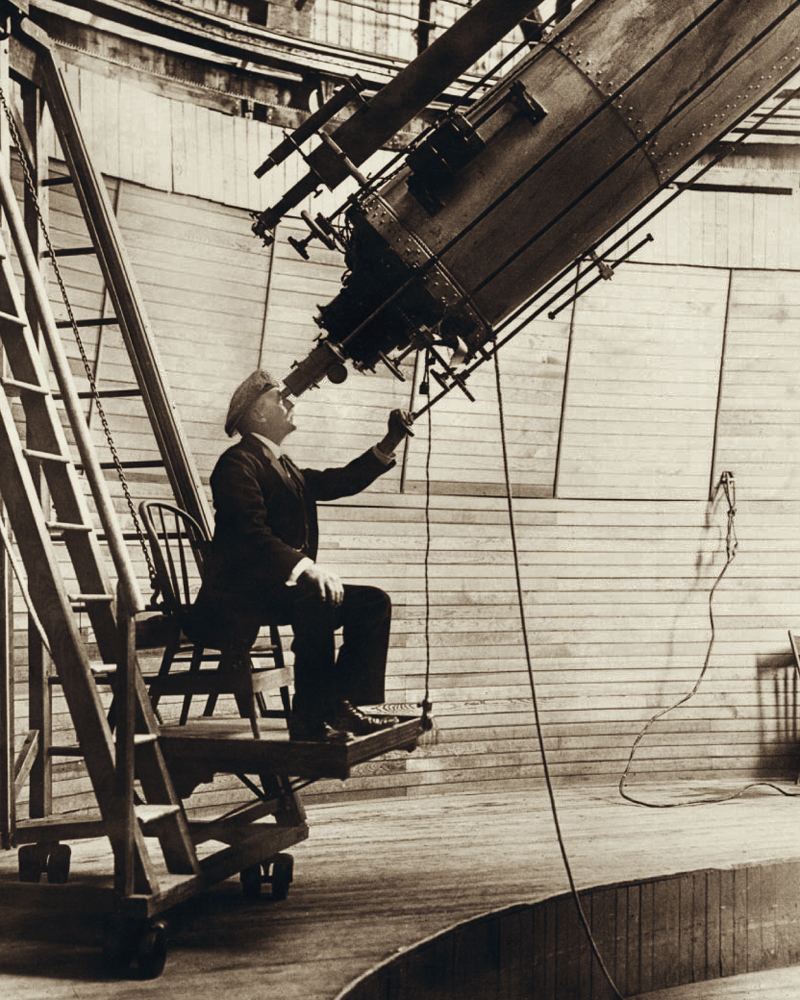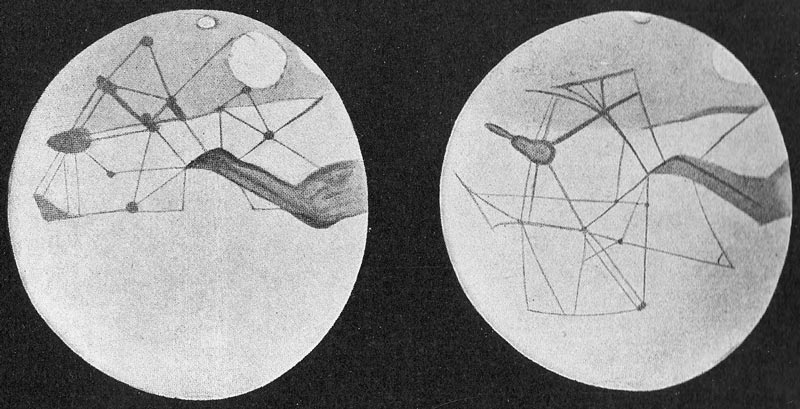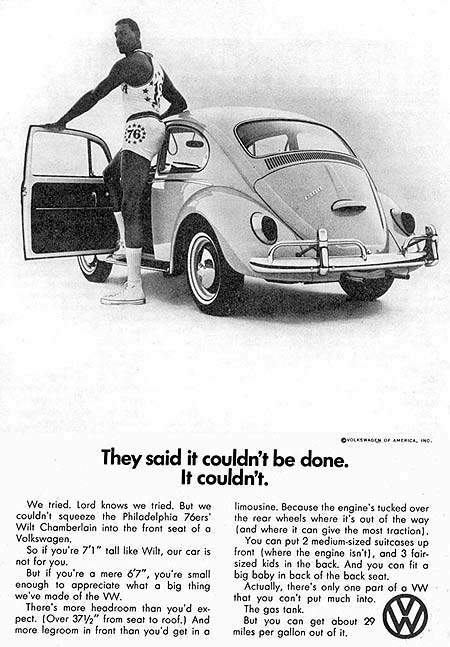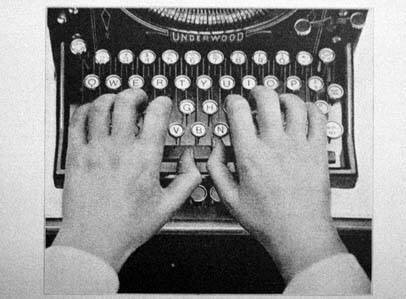Henry Miller reads from his 1936 novel, Black Spring, a passage about being charged with delivering his aunt to an insane asylum.
You are currently browsing the yearly archive for 2013.
From a new interview about Syria that Spiegel conducted with Donald Rumsfeld, who sees the perils of American intervention but maintains a capacious blind spot for himself:
“Spiegel:
Why did Obama have such big problems gaining the support of other countries for a military strike?
Donald Rumsfeld:
I believe the reason he has had difficulty gaining support both in the US and from other countries is because he has not explained what he hopes to do, what the mission would be and what he hopes to accomplish. To gain support in our Congress and from other nations requires clarity, an acceptable mission and an explicit outcome.
Spiegel:
You cannot be serious. George W. Bush, who you served as Secretary of Defense, may have been clear about what he wanted, but most Americans now see the wars he started as being misguided. That would seem to be the real reason that the willingness in the US and the rest of the world to go to war is so low.
Donald Rumsfeld:
Such sentiments among Americans are hardly a new phenomenon. After World War I, for example, there was widespread war weariness and opposition to the US getting involved in World War II. Americans were reluctant and didn’t want to go to war again in Europe. Similarly, there was no appetite for the Korean War in the United States, or the Vietnam War.
Spiegel:
From the American perspective, World War II was a noble engagement that paid off in the long run. The same can hardly be said of Iraq and Afghanistan.
Donald Rumsfeld:
To be sure, the outcomes in Afghanistan and Iraq are uncertain. But, if you look closely, schools are open, they have a free press, have drafted a constitution and have had free elections. Afghanistan was torn after years of occupation by the Soviets, a long civil war and the vicious reign of the Taliban. Today, the people there at least have a chance for a better life. So too in Iraq, with the Butcher of Baghdad gone, a man who used chemical weapons against his own people, as well as his neighbors.
Spiegel:
That sounds almost cynical given the thousands of people who lost their lives and billions of dollars those wars cost. And we still cannot be sure that these countries have a better future. But the US is now leaving them to their own devices.
Donald Rumsfeld:
Call it what you will, but my view is that we aren’t a country that can go into another nation and do nation building. That’s up to the people in those countries. There are people in the United States who think we do have the ability to nation build. I personally do not. We can help, to be sure, but they will need to do it in their own way.”
Tags: Donald Rumsfeld
We know complex machines have brains, but we’re perhaps most intrigued when they appear to have souls they way we appear to have souls–when they make us feel empathy. Even if it’s presently just a parlor trick, it’s causes an eerie sensation because of what we suspect could be in the distance. From “Inside Siri’s Head,” Patrick May’s San Jose Mercury News article about psychologist Francine Toder’s “session” with Apple’s cool, noncommittal voice:
“Toder asked Siri more questions, about religion and politics and her deeper feelings. Asked if she believed in God, Siri quickly replied ‘I eschew religious disquisition.’ Asked if she were Democrat or Republican, she again obfuscated, saying ‘We were talking about you, not me.’
After several more minutes of obfuscation, Toder tried to push harder, deeper into the soul of a woman who aims to please but ends up blocking anyone who dares to try to lift the veil.
‘Do you have empathy for people, Siri?’
‘Now that’s a good question,’ she said.
‘Do you have feelings?’
‘I can’t answer that.’
‘Do you care about me?’
‘I’m sorry, but I’m afraid I can’t answer that.’
Toder paused, frustrated with the exchange. ‘She just won’t go there.’
Finally, Toder let her have it: ‘You are annoying me with your responses, Siri.’
And suddenly, the virtual enigma allowed Toder in for one quick peek.
‘I don’t know what that’s like, being mad.’
Toder wouldn’t let it go.
‘Well, does Siri get ‘mad’?’
‘I suppose it’s possible.’
‘And if you were mad, what would that feel like?’
‘That’s OK,’ said Siri, as if signaling the session was over. ‘Just don’t squeeze me like that.'”
Tags: Francine Toder, Patrick May
Don’t let the faux British accent fool you: Like any good American, Madonna never let modest talents get in the way of her dreams. She worked really hard and had the good fortune to arrive in NYC just as the city was rebounding creatively, rubbing shoulders with many in music, film and fashion who could feed her image as videos were becoming ascendant. She was a designer and she was the product. The singer just did an Ask Me Anything on Reddit, which turned out to be kind of meh, but that’s never stopped her before. A few exchanges follow.
______________________
Question:
If you were a gay man, would you be a top or bottom?
Madonna:
i am a gay man
______________________
Question:
Hi Madonna!! Listen, I go through a rough breakup after a 3 year relationship with my bf…what should I do to ease the pain?? Which of your songs should I play repeatedly???
Madonna:
gang bang
Madonna:
the song gang bang from my last record
Question:
I love how you felt the need to clarify.
______________________
Question:
What is it about Frida Kahlo that inspires you the most?
Madonna:
that she was the subject of her art all of her work is a self portrait and yet she shared universal stories and feelings by sharing her personal story also she was a freedom fighter and she lived a controversial life and was a survivor so i admire her life story and art the way she lived her life as well as her art
______________________
Question:
What is the last dream you remember that you’re willing to share?
Madonna:
Brad Pitt and I were living together and there was a small blonde child in the bed. Sorry Angelina, it was only a dream
Tags: Madonna
A 1961 interview with Ayn Rand, a visionary and awful writer who lived inside her philosophies instead of the real world. She was an Objectivist to the end, even when collecting Social Security and Medicare.
Tags: Ayn Rand
Technologists and automakers haven’t agreed yet on what to call cars that drive themselves: driverless, robocars, autonomous, etc. Though I guess if the transition is successful, they’ll eventually just be called “cars.” Elon Musk, who prefers the term “auto-pilot” to “self-driving,” is, regardless of the terminology, advancing his place in the sector. From Nathan Olivarez-Giles at the Verge:
“Tesla Motors is getting serious about building self-driving cars. The electric automaker has posted a job opening for an Advanced Driver Assistance Systems Controls Engineer that will help the company develop technology for fully autonomous vehicles. The listing says the engineer ‘will be responsible for developing vehicle-level decision-making and lateral and longitudinal control strategies for Tesla’s effort to pioneer fully automated driving.’ Tesla wants this engineer to not only develop self-driving features for future electric cars, but also retrofit such systems to its Model S sedan.
As noted by Wired, which first reported the listing, Tesla has plenty of catching up to do when it comes to automation. The Model S lacks features that are commonplace in many other top-tier luxury vehicles such as adaptive cruise control, automated lane changing, and self-parking. Despite unanswered legal questions over the legality of self-driving cars, the tech and automotive industries are both pressing to bring this type of technology to market.”
Tags: Elon Musk
Seth Shostak, chief astronomer at the SETI Institute, believes we’ll make contact with alien life in the next quarter-century. His presentation at a Boing Boing event.
Tags: Seth Shostak
Amazon has been great for me as a reader, in the short run. I can get my ink-stained hands on just about any book I want, no matter how forgotten the title, often for just a few dollars. Of course, cheap can be expensive. Are serious writers marginalized by logarithms, with room for many more pawns but no kings or queens? Is everyone at the bottom of the new paradigm? I’m definitely in favor of the decentralization of media, but there negatives.
In the Jonathan Franzen essay I posted about earlier, and in another Guardian piece about him, the novelist and critic decries the Bezos effect on literature. (By the way, Franzen’s new book, The Kraus Project, which gives voice to his discontent with modern technology, can be purchased at Amazon.) From Franzen:
“In my own little corner of the world, which is to say American fiction, Jeff Bezos of Amazon may not be the antichrist, but he surely looks like one of the four horsemen. Amazon wants a world in which books are either self-published or published by Amazon itself, with readers dependent on Amazon reviews in choosing books, and with authors responsible for their own promotion. The work of yakkers and tweeters and braggers, and of people with the money to pay somebody to churn out hundreds of five-star reviews for them, will flourish in that world. But what happens to the people who became writers because yakking and tweeting and bragging felt to them like intolerably shallow forms of social engagement? What happens to the people who want to communicate in depth, individual to individual, in the quiet and permanence of the printed word, and who were shaped by their love of writers who wrote when publication still assured some kind of quality control and literary reputations were more than a matter of self-promotional decibel levels? As fewer and fewer readers are able to find their way, amid all the noise and disappointing books and phony reviews, to the work produced by the new generation of this kind of writer, Amazon is well on its way to making writers into the kind of prospectless workers whom its contractors employ in its warehouses, labouring harder for less and less, with no job security, because the warehouses are situated in places where they’re the only business hiring. And the more of the population that lives like those workers, the greater the downward pressure on book prices and the greater the squeeze on conventional booksellers, because when you’re not making much money you want your entertainment for free, and when your life is hard you want instant gratification (‘Overnight free shipping!’).
But so the physical book goes on the endangered-species list, so responsible book reviewers go extinct, so independent bookstores disappear, so literary novelists are conscripted into Jennifer-Weinerish self-promotion, so the Big Six publishers get killed and devoured by Amazon: this looks like an apocalypse only if most of your friends are writers, editors or booksellers. Plus it’s possible that the story isn’t over. Maybe the internet experiment in consumer reviewing will result in such flagrant corruption (already one-third of all online product reviews are said to be bogus) that people will clamour for the return of professional reviewers. Maybe an economically significant number of readers will come to recognise the human and cultural costs of Amazonian hegemony and go back to local bookstores or at least to barnesandnoble.com, which offers the same books and a superior e-reader, and whose owners have progressive politics. Maybe people will get as sick of Twitter as they once got sick of cigarettes. Twitter’s and Facebook’s latest models for making money still seem to me like one part pyramid scheme, one part wishful thinking, and one part repugnant panoptical surveillance.”
Tags: Jeff Bezos, Jonathan Franzen
Andrew Marantz’s New Yorker article, “Unreality Star,” is a brilliant piece that works as the perfect companion to Mike Jay’s excellent Aeon essay, “Reality Show,” as both study the intersection of paranoid psychotic disorders and our contemporary culture, which is truly saturated with surveillance. It doesn’t take much today to imagine we might be the unwitting stars of a beer commercial, a dating game, a reality show–because, in a sense, we all are. The opening:
Soon after Nick Lotz enrolled at Ohio University, in the fall of 2007, he grew deeply anxious. He was overweight, and self-conscious around women; worse, he thought that everyone sensed his unease. People who once seemed like new friends gradually stopped returning his texts. He went out four or five nights a week, and drank to mask his discomfort, occasionally to the point of blacking out. After such episodes, he worried that he’d said, or typed, something that he should have kept private. He suspected that people were posting embarrassing videos of him online, though he couldn’t find any on Facebook.
Lotz, who wanted to be a filmmaker, largely ignored his classwork. Often, he’d draw the blinds of his dorm room and take Suboxone, an opiate that he bought from an older student, and sleep for days. Then he’d snort Adderall or Focalin and stay up all night, watching YouTube videos and working on screenplays. His laptop became his primary connection to the world. Online interactions were less taxing than face-to-face conversations, but they introduced new concerns: just as he monitored his friends’ Internet activity, he assumed that, whenever he clicked links on BuzzFeed or posted comments on Reddit, people were tracking him, too. When he surfed the Web, in a sleepless blur, every site seemed to contain a coded message about him.•
Tags: Andrew Marantz, Mike Jay, Nick Lotz
Just because information is rich, it doesn’t mean that the truth can’t get lost. Sometimes it gets buried–or perhaps just ignored. From A.L. Kennedy’s BBC News Magazine essay:
“Among other forms of resistance, torture produces whistle-blowers, people who can walk into buildings infected with inhumanity and remain human. They make the truth of torture known, sometimes at great personal risk. It seems, in fact, an epidemic of various concealments and deceptions is giving rise to a wider and wider whistle-blowing response. While the powerful seem increasingly able to simply redefine what truth is – what is, is – the whistle-blowers are treated with increasing severity. In government, in business, in healthcare, education and the security services, the useful truths whistle-blowers bring are ignored, or punished with dismissal, smears, gagging orders, even imprisonment. While journalism can sometimes seem irrevocably corrupted by rented opinions and gossip, serious investigative journalists – professional truth tellers – are in every sense an endangered species, specifically targeted in war zones, curbed and intimidated by both oppressive regimes and democracies.
So we exist, it would appear, in a world where truth is punished and liars may lie at will – about levels of surveillance, expense claims, about statistics and financial transactions, about abuses, failures in care, about the crushing to death of human beings at Hillsborough – and only slowly, slowly will truths emerge and then be denied, before the even slower push for acknowledgement, then justice, then perhaps reconciliation, progress.
Our situation seems bleak. But, equally, we may be at a tipping point when the showbiz dazzle of the narrative is no longer enough to make us pay up, express our gratitude for the skill of the fraud.”
Tags: A.L. Kennedy
I was aware that there were attempts at video phones starting in the 1930s, but I never knew until now that special booths with AT&T’s Picturephone Mod 1 model were installed in Grand Central Terminal and other American train stations in 1964.
The great Western Electric ad above, from 1969, promised to bring the service from the hub to the home, though this particular video phone was a flop. The copy, however, was prescient about the narcissistic allure of such technology.
Sound and pictures really never came together until phones stopped being just phones and became computers. Below: The AT&T Picturephone demo in 1970. The service cost $160 per month. Also a flop.
From the September 17, 1909 New York Times:
“A sneezing fit, which opened an old wound in his wrist, almost cost the life of Frank Genole of 48 Union Street, Brooklyn, yesterday morning. He attended the Mardi Gras at Coney Island on Wednesday night, and while there some one threw some confetti at him, with which, it is believed, snuff had been mixed.
On his way home Genole began to sneeze and kept it up until early yesterday morning. Then he discovered that a deep cut in his left wrist, caused by an accident some time ago, had been opened by the violence of his sneezing. Members of the family, after trying in vain to stop the flow of blood, had him taken to Long Island College Hospital. The physicians there ended Genole’s sneezing and sewed up the wound, stopping the bleeding. Genole had become very weak from the loss of blood.”
Tags: Frank Genole
A jazzy 1963 profile of Hugh Hefner at age 35, when he was still in Chicago and ahead of the culture. The film’s score is a composition by Dudley Moore.
Tags: Dudley Moore, Hugh Hefner
In the Guardian, Jonathan Franzen, who came thisclose to being the male Gayle King, compares the Vienna of Karl Kraus to America in the age of Facebook and Apple, to an era that may have confused cool connectivity with a warm embrace. An excerpt:
“Vienna in 1910 was, thus, a special case. And yet you could argue that America in 2013 is a similarly special case: another weakened empire telling itself stories of its exceptionalism while it drifts towards apocalypse of some sort, fiscal or epidemiological, climatic-environmental or thermonuclear. Our far left may hate religion and think we coddle Israel, our far right may hate illegal immigrants and think we coddle black people, and nobody may know how the economy is supposed to work now that markets have gone global, but the actual substance of our daily lives is total distraction. We can’t face the real problems; we spent a trillion dollars not really solving a problem in Iraq that wasn’t really a problem; we can’t even agree on how to keep healthcare costs from devouring the GNP. What we can all agree to do instead is to deliver ourselves to the cool new media and technologies, to Steve Jobs and Mark Zuckerberg and Jeff Bezos, and to let them profit at our expense. Our situation looks quite a bit like Vienna’s in 1910, except that newspaper technology has been replaced by digital technology and Viennese charm by American coolness.”
Tags: Jonathan Franzen, Karl Kraus
Why the fuck did Bruce Jenner do it to himself? Here he is in 1976 becoming the greatest athlete in the world, before the divorces, the Village People, the cosmetic surgeries and the Kardashians–before he performed reverse alchemy, going from gold to plastic.
From a 1980 People magazine profile of Jenner at 30, just as his first marriage ended: “At the 1976 Summer Games in Montreal, Bruce Jenner won the gold medal in the decathlon and became the great American Olympic hero—perhaps the last of the line, given the parlous state of the Olympics today. He was lionized shamelessly. He and wife Chrystie were invited to a state dinner at the White House. His was the face on the Wheaties box. He apparently learned from the amazing vanishing act of Mark Spitz.
Today Jenner endorses everything from lines of shoes and sporting clothes to 10-speed bicycles and weight-lifting equipment. He has a syndicated sports advice column and a sky-high deal to advertise Minolta cameras. He didn’t pass his screen test for Superman, but makes his movie debut in June in Allan Carr’s Can’t Stop the Music (co-starring Valerie Perrine and the Village People). He has co-authored a spectators’ handbook to the Lake Placid Olympics. He has a sports commentator’s contract with NBC that will take him to Moscow if the American athletes go. He is negotiating with NBC to produce a couple of made-for-TV movies. He makes big bucks on the lecture circuit (‘I’ve just raised my price—it separates the men from the boys’), mostly from corporate audiences. And when others might grab for the Geritol, Jenner, at 30, feels on top of the world. ‘I’m very fortunate,’ he says smugly. ‘I now no longer have to do things I don’t want to do.’
But Bruce’s decathlon of life since 1976 has taken atoll. One casualty is his seven-year marriage to Chrystie, who worked as a United stewardess to see him through the grueling training that led to the Olympic gold. ‘Chrystie didn’t like the whole public scene,’ explains Bruce tersely.”
Tags: Bruce Jenner
From MIT’s Technology Review, a report about a more autonomous society becoming the new normal, which should be a positive thing though it hasn’t worked out that way thus far:
“A recent report (which is not online, but summarized here) from the Oxford Martin School’s Programme on the Impacts of Future Technology attempts to quantify the extent of that threat. It concludes that 45 percent of American jobs are at high risk of being taken by computers within the next two decades.
The authors believe this takeover will happen in two stages. First, computers will start replacing people in especially vulnerable fields like transportation/logistics, production labor, and administrative support. Jobs in services, sales, and construction may also be lost in this first stage. Then, the rate of replacement will slow down due to bottlenecks in harder-to-automate fields such engineering. This ‘technological plateau’ will be followed by a second wave of computerization, dependent upon the development of good artificial intelligence. This could next put jobs in management, science and engineering, and the arts at risk.”
Larry Flynt seems like an awful man, so it’s a shame he was right about so many things. This video, made in 1996 at the time of the release of The People vs. Larry Flynt, touches on his period as a born-again Christian, among other topics.
Tags: Larry Flynt
Astronomer Percival Lowell did some brilliant work in analyzing our solar system, but he took a wrong turn at Mars. In this classic 1914 photo, Lowell is examining Venus, but it was the Red Planet that burned him. At his Flagstaff Observatory, he “discovered” canals in Mars’ surface, which he felt must have been man-made–or at least Martian-made. These beliefs did not raise his stock in the scientific community. The opening of “Martians Build Two Canals in Two Years,” an article by Mary Proctor, daughter of early Mars mapper Richard A. Proctor, in the August 27, 1911 New York Times:
“According to a telegram dated Aug. 17, from Flagstaff Observatory, Arizona, Dr. Percival Lowell announces the rediscovery of two new canals of Mars, which were seen for the first time at the last opposition in 1909. The canals are now very conspicuous, and attracting world-wide attention because of their startling significance.
Measurement of their dimensions shows each of them to be a thousand miles long and some twenty miles wide. In comparison, the canon of the Colorado River would be a secondary affair. What has been the cause of these vast chasms which have suddenly opened on Mars, where the internal forces are far less than could be possibly be the case with our planet? Nothing like it has ever been seen or heard of before. To witness the coming into existence on another world of a surface feature in what we know to be no airy cloud-built fabric, but the solidest of ground, is in its character an event so far of unique occurrence.
That these vast chasms have been caused by some internal disturbance is out of the question, for shattering of the sort would certainly have left its mark in yawning, cavernous abysses–such as are on our own planet in regions where volcanic disturbances have taken place. In the case of the new canals recently observed on Mars, such widespread, shattering effects are altogether absent, and as Dr. Lowell expresses it: ‘The outcome is purely local, and of most orderly self-restraint at that. An enormous change in the planet’s features has taken place, with no concomitant disruption beyond the bounds it set. The whole thing is wonderfully clear-cut.’
That the new canals were not a mere illusion or vagary of the imagination is proven by the fact that they are again visible, but they are as great a problem now as they were when first seen in 1909. Canals a thousand miles long and twenty miles wide are simply beyond our comprehension. Even though we are aware of the fact that, owing to the mass of the planet being a little less than one-ninth of the earth’s mass, a rock which here weighs one hundred pounds would there only weigh thirty-eight pounds, engineering operations being in consequence less arduous than here, yet we can scarcely imagine the inhabitants of Mars capable of accomplishing this Herculean task within the short interval of two years.”
I really don’t want to own stuff, but I am fascinated by great product design, whether the thing we’re talking about is a chair, a push-button telephone or a pencil. I think the classic VW Beetle is pretty much perfect, and this 1966 commercial, featuring Wilt Chamberlain and some still photography, is likewise flawless.
Tags: Wilt Chamberlain
10 search-engine keyphrases bringing traffic to Afflictor this week:
- jacques tati’s playtime 1967
- when was steve jobs first mentioned in the new yorker?
- no one born in or after 2000 can ever be sold cigarettes
- creepy robots with realistic facial expressions
- alvin toffler future shock film version
- people who have apologized to donald trump
- john le carre on to tell the truth game show in 1964
- what is the title of the new movie about john du pont?
- people magazine article about jerzy kosinski
- cher and andy kaufman acting in a skit together

Afflictor: Thinking now that the New York Times has published peace activist Vladimir Putin, other dictators may get bylines at the Gray Lady.

What about me? I can write for the Times about food, theater and parenting. I have experience in all three.

Of the 43 children I fathered, only one has been convicted in the vicious gang murder of a Somali youth.
- Old Print Articles: Educated monkey plays vaudeville (1909) + Eccentric inventor tries to live without food, starves to death (1903) + Unusual inventions aimed at helping the blind and deaf (1903).
- Featured Videos: Alan Whicker interviews “Papa Doc” Duvalier (1969), Butch Cassidy’s sister (1978), Harold Robbins (1971) and a lottery winner (1966) + Muhammad Ali and Joe Louis briefly form a detente (1966) + J.Z. Knight pretends to channel Ramtha (1985) + Beyond the Fringe changed comedy on (at least) two continents (1964) + Mike Wallace visits the Washington Post in the aftermath of Watergate (1974) + Peter Sellers in ads for TWA as an international playboy, an enthusiastic Scotsman and a jolly if condescending Brit (1970s) + Harold “Odd Job” Sakata destroys Johnny Carson’s Tonight Show set (1960s) + A report on the fledgling solar-power industry (1976).
- Recently Posted on NYC’s Craigslist: Of course, you could just make your own + That’s right, I have a landline + Please help us document that moment when it all went wrong + Anthony Recker is getting awfully zaftig.
- Apart from money, J. Paul Getty wasn’t a very rich man.
- David Epstein, author of the Sports Gene, did an Ask Me Anything.
- Julian Assange manages his empire from a ladies’ room in a London embassy.
- Margalit Fox has an obituary about America’s oldest typewriter repairman.
- Facebook is supposed to make us more satisfied, but it doesn’t.
- Interstellar archaeologists look for lost civilizations in space.
- Like it or not, the micro-drone revolution is coming.
- You can’t yet shoot down drones in Colorado.
- Errol Morris discusses Donald Rumsfeld’s obsession with words.
- Astrophysicist Roger Angel wants the American Southwest to power the world.
- Contrarian conceptualist John Baldessari rethinks art-world branding.
- As Pico Iyer points out, tragedy only occasionally has meaning.
- Jellyfish may be taking over the oceans.
- Space farming may be the key to species survival.
- Google is competing with traditional automakers in the autonomous sector.
- Autonomous vehicles will arrive incrementally.
- A look into the environmental impact of Tesla Motors.
- Journalist Caspar Henderson discusses The Techno-Human Condition.
- Today’s hackers are engaged in serious cyberwar.
- DARPA is planning underwater, autonomous military systems.
- An interactive timeline about the history of the Dow.
- Charles Bukowski was investigated by the FBI.
- Cal Worthington sold cars, was great at hoopla.
- Photographer Jim Mangan captures the desert’s otherworldy beauty.
- Robotic maggots can eat your brain tumors.
- A brief note from 1911 about a wealthy baby.
- A brief note from 1908 about a hardware store.
- A brief note from 1883 about a ticklish woman.
- This week’s Afflictor keyphrase searches.


